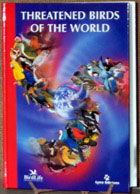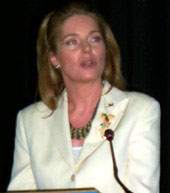 Sustainable Developments
Sustainable Developments |
|
| Briefing: Saturday, 7 October |
|
Delegates met in parallel interactive sessions throughout the day to consider: mobilizing knowledge for biodiversity; agriculture, biodiversity, economy and society; local solutions promoting social equity and cultural diversity; developing and investing in biodiversity business; integrating biodiversity science into environment policy and management; and the ecological limits of climate change. Several contact groups also convened to consider budgetary matters and draft resolutions. Note: There were no formal meetings on Sunday, 8 October |
|
|
|
|
DEVELOPING AND INVESTING IN BIODIVERSITY BUSINESS: Global business partnerships |
|
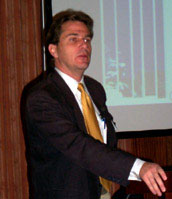
|
Dan
Biller, OECD, discussed financial mechanisms for creating markets for
biodiversity, including non-market transfer payments, financial institutions
and investment funds. |
| Robert
Barrington, Earthwatch Institute, overviewed corporate biodiversity
strategies, underscoring harnessing businesses' skills, resources, operational
reach and impact to conserve biodiversity part one part two |
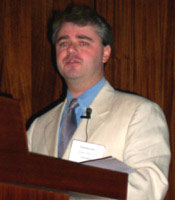 |
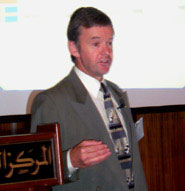
|
Gordan Shepard, WWF, explained how the Forest Stewardship Council's forest product certification programme was developed. |
|
LOCAL SOLUTIONS THAT PROMOTE SOCIAL EQUITY AND CULTURAL DIVERSITY: Gender within natural resource management |
|
| From left to right: Elizabeth Odio, Vice-President of Costa Rica and Minister of Environment, and Dr. Khawar Mumtaz, IUCN Councillor and and Chair of the panel. | 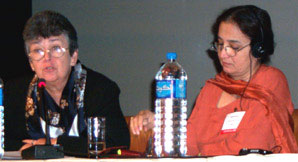 |
|
AGRICULTURE, BIODIVERSITY, ECONOMY AND SOCIETY |
|
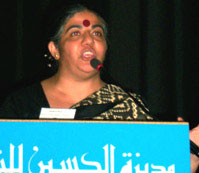
|
The trade debate: Vandana Shiva, Research Foundation for Science, Technology and Ecology, demonstrated how trade liberalization negatively impacts biodiversity and brings about environmental and social deregulation, stressing that the biggest challenge in reforming trade rules is accommodating global inequalities and the cost of environmental degradation. |
|
|
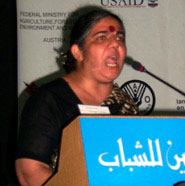 |
|
GMOs' intrinsic value and impacts: |
|
|
THE ECOLOGICAL LIMITS OF CLIMATE CHANGE |
|

|
From left to right: Brett Orlando, Climate Change Program Officer, IUCN; Claude Martin, Director General, World Wide Fund for Nature; Kristalina Georgieva, Director of the Environment Department, World Bank; and Juan Myer, IUCN Regional Councillor for South America and Minister of Environment of Colombia). |
|
Her Majesty Queen Noor returned to the Sports City over the lunch hour to launch BirdLife International's Threatened Birds of the World. |
|
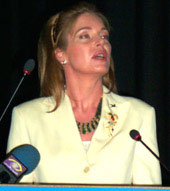
|
During her speech, Queen Noor described the contents of the book, which include colour illustrations, habitat descriptions and trends for the 1,186 bird species presently threatened with global extinction. |
| At the end of the launch, Director General Maritta Koch-Weser was given the first 'public' copy of Threatened Birds of the World | 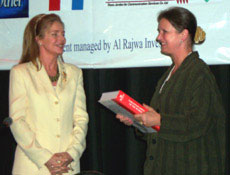 |
|
Miscellaneous photos |
|
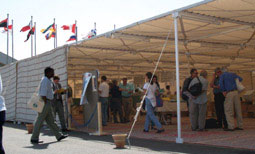 |
Left and below: images of the maze of tents the Jordanians organizers erected for the purpose of housing the administrative functions of WCC-2. IUCN field staff at WCC-2: modern-day Bedouins? |
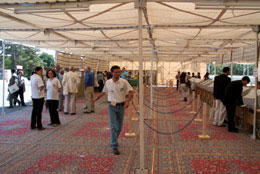
|
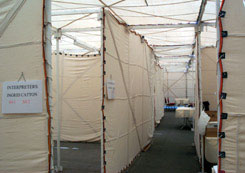 |



